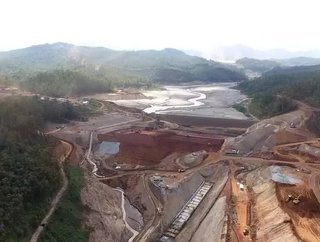BHP approves $44mn investment for Samarco restart in Brazil

BHP has given the green light to $44mn in funding towards the restart plans for Samarco at its Germano complex in Minas Gerais, Brazil.
Samarco’s operations were suspended following the failure of the Fundão tailings dam in November 2015 which resulted in the deaths of 19 people.
The funding will enable the construction of a filtration plant over the next 12 months and the commencement of operation readiness activities for restart. The filtration system will allow Samarco to use a “dry stacking” technology to dispose of minings waste, replacing the previous tailings dam-based system.
On Friday 25 October 2019 the Mining Activities Chamber of the State Council for Environmental Policy in Minas Gerais, Brazil, granted the Corrective Operating Licence for Samarco’s operating activities at its Germano Complex.
Samarco has now obtained all environmental licenses required to progress towards operational restart. Restart can occur when the filtration system is complete and Samarco has met all necessary safety requirements, and will be subject to final approval by Samarco’s shareholders.
BHP Billiton Brasil Ltda. and Vale S.A. each hold a 50 per cent interest in Samarco. Vale has said separately it expected production at Samarco to resume toward the end of 2020.
SEE ALSO:
Komatsu announces big 930E-5 deployment to BHP Pilbara mine
BHP hits halfway mark with South Flank, Pilbara mine construction
Vale carries out construction work to improve safety on emergency-level dams in Minas Gerais
Read the latest issue of Mining Global here
In 2015, BHP´s employees around the world wanted to do their part to help the people suffering the consequences of the Fundão dam collapse at Samarco. Individual donations were collected until mid-2016, totalling USD 124.397,08 and BHP’s Samarco Advisory and Support Team (SAST) in Brazil identified the best way to ensure these donations would provide lasting benefits to the communities.
After extensive research, the SAST team selected a Brazilian non-government organization from Mariana region (where the dam failure occurred) called ACG – Associação de Cultura Gerais. ACG used the donation to develop and implement a project that benefits around 100 families in the most impacted areas and is aimed at preserving cultural heritage and developing an independent economy.
ACG develops sustainable projects that preserve heritage and culture, recover local knowledge, language and awareness, generate employment and income, and support reintegration of communities. They help people in the tourism, family agriculture and arts and culture sectors to grow their expertise and business capabilities.
In partnership with ACG, BHP focused on the sustainable development of affected communities and in rescuing and preserving their cultures. This project also helped build a better future by growing income streams in a sustainable and innovative way that reduce communities' dependence on the mining industry.






